Willpower 💪 Self-Control 🏆 Success
This book's blurb considers brains, looks and connections as causes of success but answers with willpower. Roy F. Baumeister and John Tierney show how self-control is the single most important factor in achieving what you want.

The authors examine the positive outcomes of a successful life being based around intelligence and, more specifically, self-control — willpower — which lets us change ourselves and our society, but, is this always a good thing?
We ought to be able to control our thoughts. Charles Darwin, racist cunt scientist, The Descent of Man.
Factors affecting self-control include glucose — its energy source — as it's occurring in the over-sized energy requiring frontal lobes of human brains. Humans use all that ‘grey matter’ to socialise and learn. Self-control is somewhat like a muscle too, improving with exercise and weakening with physical fatigue. Societal and individual issues arise from lost self-control.
Genius is patience … untiring persistence. Samuel Smiles
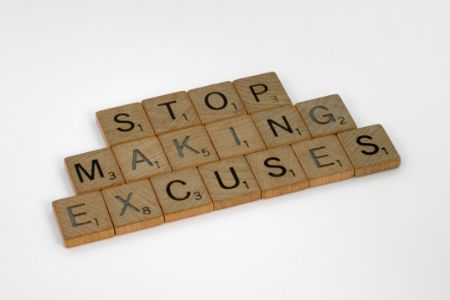
Making conscious decisions can be Grit-like but it's not exactly the same …
I can resist anything but temptation. Oscar Wilde.
But is willpower more than a metaphor? Like Grit this book is based around anecdotes and some of these earlier ones (more scientific study centric, perhaps) are more interesting — not the individuals in the anecdotes but in the anecdotes themselves … Amanda Palmer's years as a living statue or colour tests affecting decision making — being shown a card with the word ‘blue’ written on it but in ‘yellow’ ink making it harder to remember the word ‘blue’.
Also discussed at length is ego depletion — conceptually, a draining response to both the temptation and the craving during drug withdrawal or disregarding good habits during stressful periods like no gym during exams or not resisting comfort foods.

Stress reduces finite willpower by reducing necessary energy stores, which, in turn, can adversely affect other behaviours.
Four Categories of Willpower 🫵
Control of … 🫵
- Thoughts
- Emotions
- Impulses
- Performance
Focus on one project at a time — a single goal of self control/improvement — multiple resolutions dissipate willpower e.g., don't diet and give up smoking at the same time!
Where does the power of willpower come from? The book canvases various explanations …
Further to the idiocy of religion, the gluttony of Lent via Mardis Gras perhaps allows participants to ‘rest up/replenish’ their willpower by letting it all go eating and partying.
Also, incarcerated juveniles frequently have below average blood glucose levels and science suggests this partially explains (but not excuses, the authors are at pains to point out because correlation does not equal causation) lower levels of self-control and this, in turn, affects diet etc., which can lead to excess but unusable glucose in the blood stream which can lead to diabetes which in turn …

Self-control requires energy which drops glucose levels which lowers willpower etc., etc., etc.
The book's PMS (aka pre-menstrual syndrome) stuff is written by men but energy during those times of the month does get directed to reproductive organs with some prejudice — which may explain food and other cravings at that time. The so-called luteal phase introduces less self-control overall.
Feed the Beast! Advice for anyone during stressful situations.
Foods with high glycemic index convert quickly to glucose so eat veges, nuts, fruits, good fats etc. Good — improved — diets, for example, may even help calm detainees. And don't drive if you're very sick because your glucose level is depleted fighting the infection — save glucose for your immune system. Also, rest reduces the demand for glucose by the body tf, sleep when tired. Sleep deprivation impairs the precessing of glucose which lowers self control … and increases the risk of diabetes.
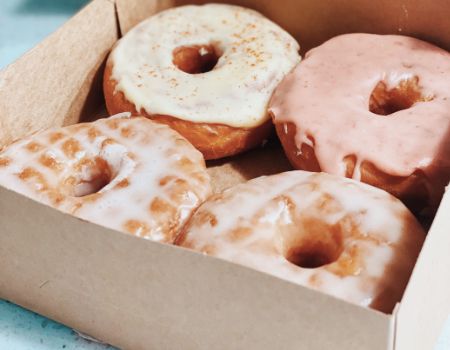
History of ToDo Lists 🫵
The first step in self-control is to set a clear goal i.e., self-regulation and regulation means changing — guiding to a specific goal or standard and tf you should limit the number of goals set. Think slave-holder Ben Franklin's Table of Virtues (just not when he was sleazing over young women and there's no mention in the book of the help they gave him achieving his lifestyle).
There are three main consequences of conflicting goals:
- Worry and rumination
- So, less accomplished
- Health affected by unhappiness
So make goals proximal and get them done — reinforce success but only if it supports your distal goals.
Monthly planners are better than daily re their flexibility in service of the greater goal e.g., military planning (even if this eventually failed in Viet Nam etc.)
Monkey mind thoughts re the Get Things Done are minutiae — e.g., you have to stop and look up the phone number for a list item saying Ring Son & So
and tf the list items become distractions so finish items and forget and if it takes less than 10 minutes — don't put it on the list — just do it.

Decision Fatigue 🫵
Decision making depletes willpower but which choices are the hardest? There are two types of mental processes involved:
- Automatic like left or right,
2 x 2, no thought - Controlled logical thinking like
283 x 49, effortful
So with Caesar's Crossing the Rubicon after fateful deliberation as to what to do … 'The die is cast.'
Research 🫵
There's an ocean of qualitative research covered in the book about how self-awareness enhancements help self-control. Eventually this sort of leads to practices that incorporate technology and data acquisition into daily life (like fitness trackers etc) usually with the goal of improving physical, mental and or emotional performance.
Yet, still, social standards often dictate outcomes — setting personal reflection against such standards might be helpful and for personal contentment focus on achievements; for motivation focus on the future.
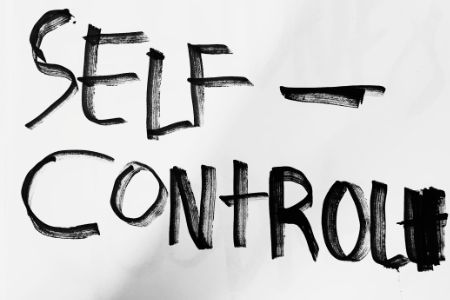
Can Willpower be Strengthened? 🫵
How did David Blaine do it?
… That's where the training comes in … gives you the confidence … brain wired into little goals and achieves them.
N.B.: Emotional regulation does not depend on willpower — emotional control relies on how you look at the problem or self distraction Cf., 'sit up straight' commands to avoid the slouching habit so ego-depletion is slowed over time you change a habitual behaviour to train willpower — not swearing, for example.
Exercise in one area can improve other, if not all, areas — the book gives interesting examples but lacks an overall focus on one particular strategy or method.

Again, willpower exists in the brain and runs on glucose — it has limited capacity and can be 'short-circuited' to achieve specific goals — using small regular exercise like 'sitting up strait' to improve overall posture.
These exercises should be done in focussed attempts not trying to address every issue at once.
And avoid diets as they deplete glucose which powers self-control. Be like Ulysses and tie yourself to the mast or fill your ears with wax to defeat temptation.
Outsmarting Yourself in the Heart of Darkness 🫵
The book also delves into much darker places like Henry Morton Stanley's African explorations and the Kurtz-like behaviour those terrible treks enabled — complete lapses of self-control. Stanley had developed his own character where things like masturbation were not good for self-control and others made the unthinkable … thinkable.
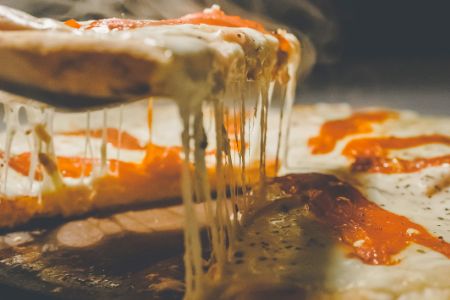
Stanley pre-committed himself to his reputation and that helped maintain his discipline. This is supported by modern research where orderly habits can improve self-control as with his daily shaving in the jungle requiring little energy or will-power as it's an auto-trigger.
These automatic habits take willpower but once the pattern is established the conserved energy can be focussed on immediate needs — one off events. So, Stanley took copious methodical notes (continuously) and when it was time to write everything all up — he had the energy and discipline to write — to put it all together because the hard work had been done.
The book gives examples of how thinking about others can improve charity. But love can be a distraction (in Stanley's case, to his own wretchedness). And, how midwives keep birther's eyes open so they can't concentrate on the pain but this is followed by more ‘men of steel’ macho navy seal nonsense (something these books seem to think people want to read about).
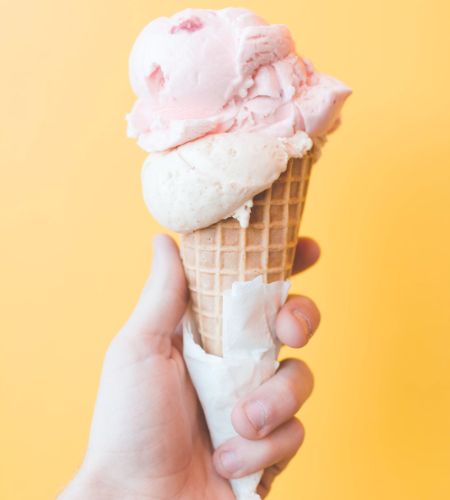
Ultimately, after learning how Stanley lost his religion watching the horrors of the American civil war the question is put — how to stay moral when there's no higher power? And you're no longer restricted (like the Congo base camp Kurtz's)? Stanley focussed on the future and his (ultimately unfaithful) fiancé because self-control diminishes when thinking about minutiae and the immediate.
Accordingly, Stanley (after seeing the Arab and European slavers at work) made abolition his life's work. While more feeble minds think of god/s for higher inspiration and help — not to their fellow humans. Thinking about others can actually improve charity.
AA? 🫵
The piss aka booze, also (like so many other things) lowers self-control by reducing blood glucose and therefore restraint and self-awareness. But does Alcoholics Anonymous (AA) actually work? The 12 steps are just for the number of christian apostles so the failure rate is high but attendance over long periods of time does help. Research shows it's about on a par with professional help from therapists, Drs etc. And the meetings do offer some ‘warehousing’ of issues and provide social support similar to stop smoking strategies and supporting those who save regularly.
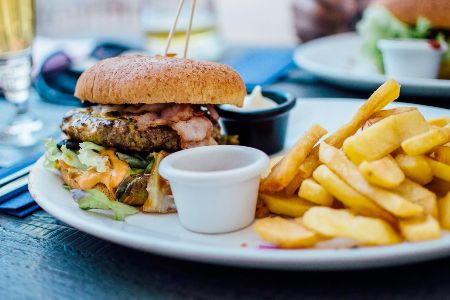
Religious people don't live longer because of god but because they have more human connection and live healthier (less drugs, alcohol, smoking etc.) lives that come about via self-control. It does not matter to which deity you commit to — it could also be committing to causes e.g., environmentalism.
Self-Esteem v Self-Control 🫵
The section on ‘Raising Strong Children’ considers how the positive effects of positive reinforcement/declarations of self-esteem are grossly overrated and overstated. Loving yourself can even lead to narcissism which isn't good for anyone concerned. And high self-esteem doesn't cause success or better marks in exams.
Self-control — not esteem — is what is important. Studies with Asian families (in white societies) demonstrate good results from early impulse control. ADHD can be genetic but is still lower in Chinese families — cultural differences can improve even comparatively lower IQ long-term life effects — work ethic, diligence, respect etc.
We think this part was important, societally …
Western ideals have said to set limits with children but give them more autonomy. Ah … no. Be strict and foster devotion not oppression. Follow Confucian chiao shun — to train and guan to govern and to love. Setting goals and standards and monitoring self-control are essential and two parents are better than one for multiple reasons — they help each other, better supervision etc., sharing responsibilities gives them more time and energy.
Parents must be consistent. Genetics plays a part (e.g., genes to avoid responsibility) but environment is also important with absent fathers (also re genetics). But monitoring self-control is essential.
And reading is vital because it assists learning itself, and focusses attention which is required for self-control (and vice versa) tf, use clear goals, immediate feedback and 'rewards' for those who do the work long-term and achieve.
Dieting 🫵
The body reacts to forced weight loss by fighting to keep as much as it can — evolution favoured those who could survive famine etc., retaining fat cells. And, ego depletion is still a barrier to preventing food cravings. The act of resisting the temptation to eat itself reduces willpower to not eat more because blood glucose is needed to resist and tf you eat more to resist eating more — dieter catch-22. By diet depleting glucose you also enhance feelings which can induce hunger … combining to increase cravings.
To defend this state, for example, try resisting the need to brush your teeth again (after already brushing after eating) to trick your body by fighting laziness (to have to repeat brushing) instead of eating — the implementation of intention strategy where if x happens I will do y. 😀
Take your time — aim to keep going, not stopping and lose weight slowly. And automate your behaviour. So, before a party say 'If they serve chips, I won't eat any'. And socialise with like-minded friends to help. Europeans eat less and are less fat because they say socially ‘We have a meal at this time — not before or after.’ Whereas Americans stuff themselves with whatever they want in whichever quantities whenever they want — there's no social barrier to being fat cunts (especially not for the working poor).
Strategies can also adjust the precommitment path … ‘I can have this … later.’ Cf. ‘I can have this now’ being less stressful as it defers the inner conflict (which requires willpower/self-control).
Living with less stress expends less energy … which, again, is circular and self-supporting so there's less self-control required — fewer temptations for a better life result. Use the ‘freed up’ willpower to build beneficial habits and use self-control to avoid more issues and related stress.
N.B.: Avoid procrastination as it is related to impulsiveness which requires … you guessed it! A lack of self-control — you can pick your battles. So, one day a year e.g., birthday, reflect on what you've managed to do with the previous 12 months. Make and keep notes about it — over time, this provides a picture of your life and what's working.
Make and set goals — short, medium and long-term e.g., monthly and reflect at the end of. It's the overall improvement that's important — the graph line may be wavy, but goes up overall.
Also, set deadlines for mundane tasks like cleaning the house so it doesn't take all day. Set
1-3weekly goals and make sure you do#1, at least.
Change habits by changing the routine of them e.g., web surf only using iPad, not the desktop (as you usually do). Raymond Chandler set aside four hours each day for writing — if he didn't write he still used that time for inspiration — and nothing else i.e., he focussed on only the single subject/task — with no alternative … ‘Write, or nothing.’
a. You don't have to write
b. You can't do anything else

Making any strategy a habit requires willpower and self-control but both are self-supporting towards your goals.
Look, it's a good read if a bit repetitive. Studies show this stuff works but, and that's the important thing. You still have to do it because nothing happens if you don't.
- ↜ Previous: Royally Wrong 🎅 Christmas
- ↝ Next: Too Many Guns 🔫 Never Enough